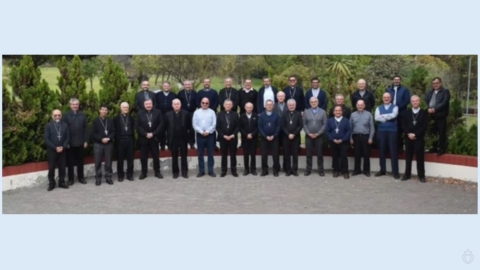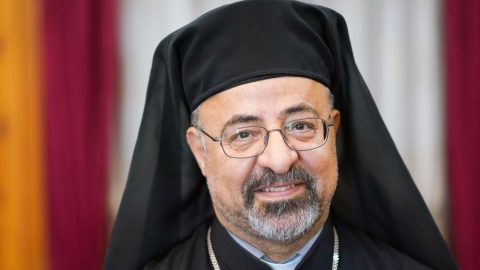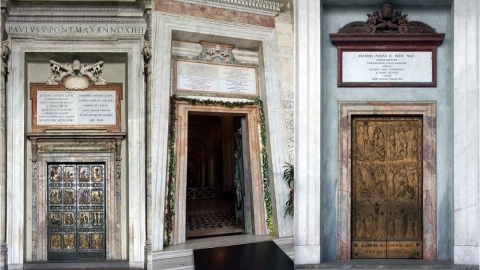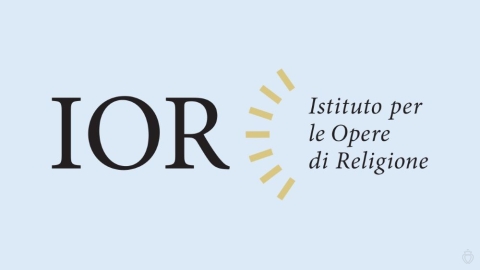China: The Church Under the CCP Attempts to Restore Her Image

Bishop Joseph Shen Bin
“I say to my foreign friends: ‘Come see what the Church in China truly is.’” From the diocese of Shanghai (China), a “smile campaign” was just rolled out in the 15 pages of a diocesan periodical which received (as it had to) the imprimatur of the local branch of the Chinese Communist Party (CCP).
The prelate who engages in this exercise was not chosen by chance: Bishop Giuseppe Shen Bin was in fact unilaterally nominated bishop of Shanghai in April of 2023, in violation of the provisional agreement between the Holy See and China signed in 2018.
The Vatican, faced with this fait accompli, then chose to validate the decision of the Chinese authorities in July, a move which numerous Catholics in Hong Kong and elsewhere considered a capitulation to the abuse of Beijing’s religious policy.
The question of the agreement between China and the Holy See is, incidentally, at the heart of the interview granted by Mgr. Shen Bin, who did not run short on praise for it—which is far from reassuring to Catholics attached to the freedom of the Church. He says, “since the signing of the provisional agreement in 2018, all the Church in China was opened to the exterior world.” He mentions, in support of his statement, the recent—and fleeting—participation of two Chinese bishops in the Synod.
According to him, this is an opening whose fruits will surely be apparent: “In my interaction with the universal Church, I discovered that the Chinese Church has more and more friends.”
The bishop of Shanghai seems to be in any case the ideal man for praising to outsiders the merits of a Chinese Church turned toward the future: the prelate is a cleric docile to the instructions of the CCP, at the same time positioning himself clearly within the lines defined by the current pontificate.
In this way, Shen Bin knows how to make elements of the synodal language his own: “We cannot always hold ourselves to old rules, think rigidly, remain stuck in our own way of doing things. [...] In Shanghai, the life and development of the Church requires creativity and imagination, because the Gospel is always new and the new wine must be put into new vessels,” he writes. The Vatican could not have said it better.
At the same time, the prelate appears faithful to the CCP party line, recalling the importance, in his eyes, of the Sinicization of Catholicism, which Xi Jinping made one of the major principles of his religious policy: “We must adhere to the principle of patriotism and love of the Church, adhere to the principle of independence and of autonomy in the management of the Church. We must adhere to the principle of democracy in the management of the Church and adhere to the direction of the Sinicization of the Catholic Church. It’s a line that no one can cross, and it’s also a sensitive line, that no one must touch.” It is a red line, in every sense of the term.
As for the most critical voices in relation to the real situation of Chinese Catholicism—such as Cardinal Joseph Zen, whom the bishop of Shanghai does not mention but he cannot avoid having in mind—he doesn’t give them too much attention. “If you want to understand the situation of the Church in China, you must listen to me, for I am at the head of the Council of Chinese Bishops. I know more about the situation of the Church in China than what is reported elsewhere,” the prelate informs us. Should we be aware that the Council of Chinese Bishops is not an ecclesiastical organization, but rather reports to the CCP?
And to conclude a text clearly intended for foreign Catholics who are uneasy about the growing control of the CCP over the Church, he writes: “Come to China to observe the reality on the ground. [...] In the past, it was mostly the outside world that gave us the opportunity to travel outside of China. Now, I can say with full confidence: it’s me who can provide you with airplane tickets and invite you to take your friends to China to see what is happening. We will welcome with confidence, openly and warmly, all those who will come to visit the diocese of Shanghai.”
(Source : Asianews – FSSPX.Actualités)
Illustration : © Asia News





